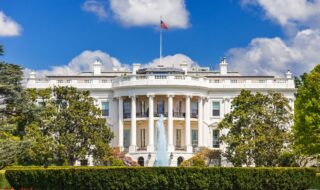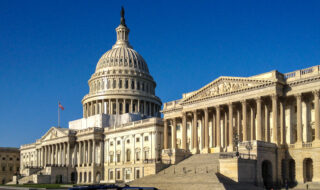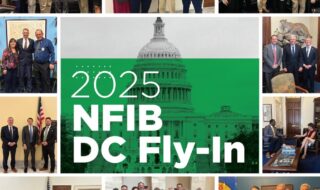January 20, 2022 Last Edit: June 5, 2025
2022 Minnesota Session Preview – Part II
In part one of our preview of the 2022 Minnesota Legislative Session, we looked at broad themes that will shape this year’s action.
In part two, we’ll review NFIB’s top priorities for the session. As always, NFIB will be at the Minnesota Capitol working hard to make Minnesota a better place for small businesses.
Reduce the Tax Burden for Small Businesses. NFIB-MN supports reducing the tax burden on Minnesota’s small businesses. The massive $7.7 billion state budget surplus presents a once in a lifetime opportunity to reduce the tax burden on Minnesota’s small businesses. Our state’s tax system consistently ranks among the least business friendly in the country.
Minnesota ranks poorly in many key tax areas:
- t-3rd highest corporate tax rate in the country
- 5th highest top individual tax tier (9.85%)
- 5th highest overall state-local tax burden in the country, at 12.1% or an average of $7,000 per person
- 6th highest state sales tax rate
- lowest individual tax tier (5.35%) is higher than 25 other states’ top rate
The surplus comes in spite of a 47% increase in state general fund spending from 2013 to 2022.
This is a clear sign that Minnesotans – especially Minnesota’s small businesses – are overtaxed. It’s time for lawmakers to give Main Street a break and start making Minnesota’s tax climate more competitive.
Repay Unemployment Insurance Debt. Minnesota’s Unemployment Insurance (UI) Trust Fund, which pays unemployment claims and is funded by an employer payroll tax, is nearly $3 billion in debt. This includes over $1 billion borrowed from the federal government to continue paying unemployment claims.
The debt was a result of a spike in unemployment claims during the pandemic and resulting government restrictions on business activity. Recognizing that the debt is not the fault of employers, nearly 30 other states – red, blue, and purple alike – have used federal COVID-19 relief funds to avoid or limit tax increases. Minnesota has used $0 toward UI debt repayment and employers will see years of higher UI taxes as a result.
NFIB members broadly support using state and federal surplus funds to pay down Minnesota’s UI debt. With nearly $8 billion in general fund surplus and over $1 billion in unspent American Rescue Plan (ARP) funds, the state has ample means to give small businesses relief from higher UI taxes.
Fund Reinsurance to Keep Individual Health Insurance Premiums Low. We support continuing Minnesota’s reinsurance program for an additional five-year period under a renewed federal waiver.
Since 2018, our state has operated a reinsurance program to reduce premiums in the individual health insurance market. Prior to the program, premiums were spiking by double digits every year in many parts of the state, and the market lost nearly 50 percent of its enrollees.
Minnesota’s reinsurance program has successfully reduced premiums and stabilized the market. According to a 2021 federal review, the reinsurance program lowered the cost of the most affordable Silver Tier plan by 34% and the most affordable Gold Level plan by 31% in 2020. Reinsurance payments are funded by the state and federal government, with over half of the cost paid with existing federal dollars.
The program serves a similar purpose as the state’s former “high risk pool,” which subsidized the cost of private health insurance to ensure those with pre-existing conditions could access healthcare.
COVID Lawsuit Liability Reform. NFIB-MN members support providing targeted COVID-19 liability reforms that would protect businesses and employers from opportunistic lawsuits while still allowing legitimate claims to proceed.
Minnesota businesses have gone to great lengths to not only protect their customers and employees but to also pitch in to help the state combat the COVID-19 crisis. Businesses that follow relevant governmental guidance on reducing the risk of COVID-19 should not be subject to legal costs and potential liability as a result of speculative lawsuits that seek to take advantage of a crisis.
Over two dozen other states and the District of Columbia have already enacted similar reforms. Minnesota should follow their bipartisan lead and do the same.
Preserve Affordable Energy Options. NFIB-MN members overwhelmingly oppose government attempts to ban existing energy sources.
States and some local governments around the country have recently targeted natural gas usage for elimination. Some local governments have banned the installation of natural gas hook-ups in new construction. Massachusetts allows municipalities to adopt “stretch energy codes” that allow for local bans. California requires new homes to be “electric-ready.” And New York Governor Kathy Hochul recently announced her support for a ban on natural gas in new construction by 2027. Minnesota lawmakers have pursued similar measures.
On the other hand, 20 states have enacted prohibitions on these types of local bans, preserving natural gas as an option in homes and commercial buildings. Natural gas is often half the price or less of electric heating on an energy equivalent basis.
Energy costs vary by area, and it’s important for small businesses to be able to choose the energy source that is most affordable and most practical for them. It is impractical and expensive to force small businesses to rely solely on electricity for all energy needs.
No Electric Vehicle Subsidies. NFIB-MN members strongly oppose new or increased taxes, fees, or surcharges to fund subsidies for electric vehicles or related infrastructure (e.g., charging stations).
New fees or taxes on transportation and energy to provide electric vehicle rebates are a tax increase on small businesses and average Minnesotans to benefit the wealthiest consumers at a time when energy costs are already on the rise. In recent years, Minnesota lawmakers have proposed tens of millions in taxpayer-funded subsidies for electric car purchases and charging stations.
Our members believe it should be the responsibility of EV manufacturers and users to fund the development of infrastructure for their use. Innovation and market demand, not government subsidies, will fix barriers to adoption like lower mileage range and long charging times.
No Small Business Mandates. The small business recovery remains fragile. NFIB members continue to report numerous headwinds. Inflation, supply chain shortages, worker shortages and the lingering effects of the pandemic are all hurting small businesses’ ability to regain their footing.
Now is not the time for harmful, expensive mandates on the private sector. We will fight misguided attempts to have the government micromanage small businesses, including interference with the ability to set wages, determine benefits, and manage employee relations. Unfunded mandates like paid leave requirements, advanced scheduling, or government run paid family and medical programs would add significant expense for small businesses and make them less competitive.
Small businesses know their business better than the government ever will and nobody wants their small business to succeed more than an owner. Minnesota lawmakers should look for ways to make it easier for entrepreneurs to find success, not put additional obstacles in their way.
No Hiring Restrictions. Minnesota’s workforce shortage is hurting the small business recovery. Our state’s labor force participation rate remains well below pre-pandemic levels, exacerbating the hiring challenge.
In a recent survey, almost half of NFIB members reported job openings they could not fill in the preceding month. Ninety-five percent of small businesses hiring or trying to hire reported few or no qualified applicants for their open positions. Eighty-three percent reported increasing starting wages to entice more applicants.
The last thing small employers need is further interference in the hiring process. This is why NFIB-MN members oppose attempts to prohibit employers from asking applicants about salary history or conducting a credit check on prospective employees.
NFIB is a member-driven organization advocating on behalf of small and independent businesses nationwide.
Related Articles













